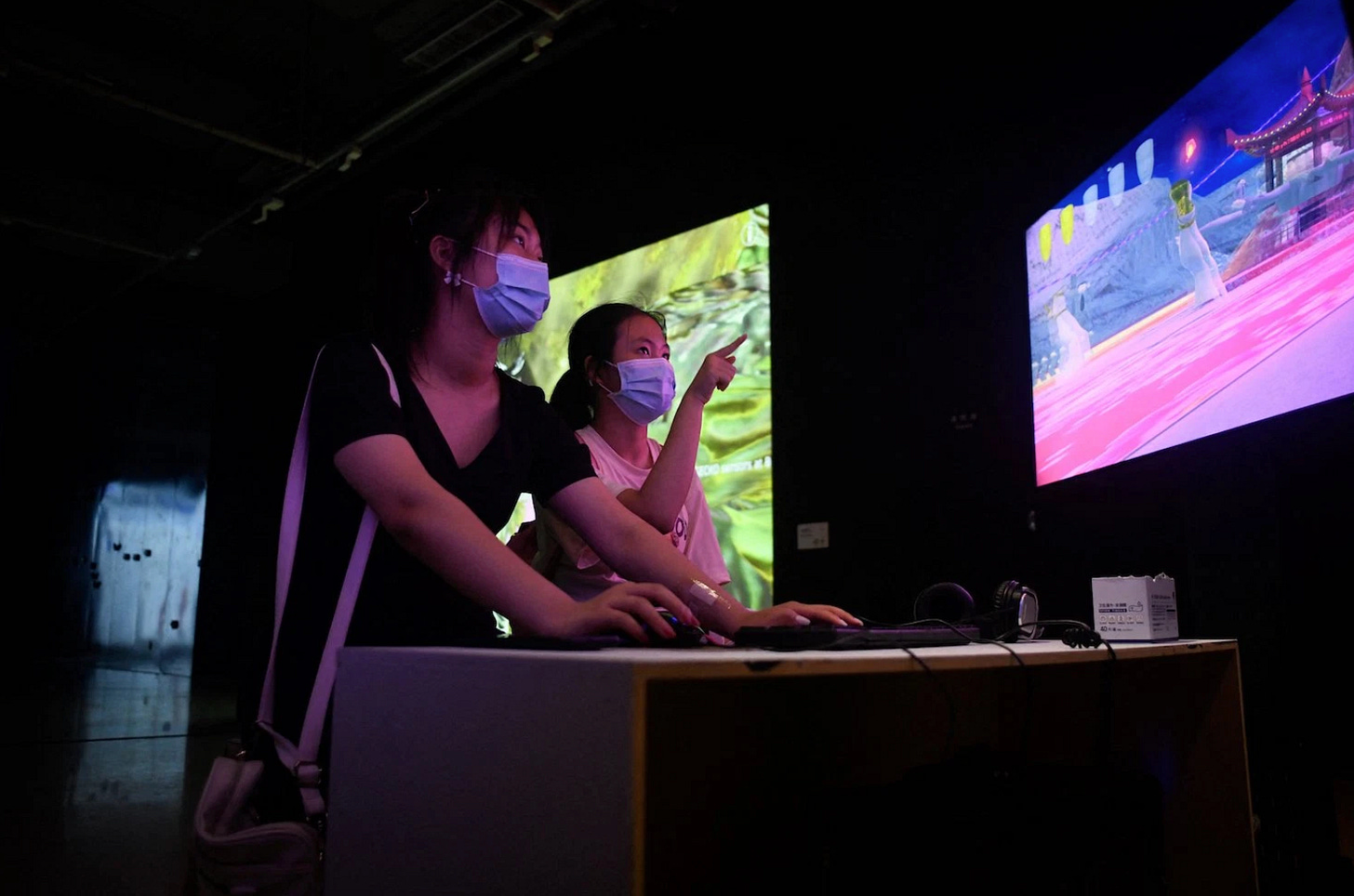China's metaverse will not be.
Beijing's tech crackdown points to a different understanding of the tech industry

As of this month (hello, September!) children in China under the age of 18 are allowed to play video games for no more than three hours per week, Friday through Sunday between the hours of 8 p.m. and 9 p.m., with a ban on gaming between Monday and Thursday. The new regulation, unveiled by the National Press and Public Administration, is meant to pull the plug on what Beijing once described as a “spiritual opium.” It will be enforced by requiring gamers to use real name registration and mandatory face scans. Unsurprisingly, Chinese teenagers are not impressed.
There have been many hot takes on what’s behind Beijing’s latest regulatory action against its tech industry (the regulation has caused China’s leading gaming stocks – Tencent, Netease, Bilibili – to fall). So, allow me to fathom one more.
What we in the West have largely come to understand as the ‘tech industry’ – namely, consumer internet spearheaded by companies like Google, Amazon, and Facebook – is not what Beijing considers the ‘tech industry.’ Notice that Beijing isn’t cracking down on all of its technology companies. Huawei, for example, still seems to enjoy full government support. Beijing is also hell–bent on trying to create a world–class domestic semiconductor industry, and is spending heavily on artificial intelligence. So it would appear that it is not tech that Beijing is pushing back on, but rather consumer–facing internet software companies that the CCP seems to have decided are less valuable to its policy objectives than hard tech. In other words, the crackdown on China’s internet industry seems to be part of its evolving national industrial policy which, as I have argued elsewhere, is firmly rooted in the CCP’s ideology.
That ideology is of course complex but, once distilled, boils down to Xi Jinping’s dream of ‘national rejuvenation,’ for which power – geopolitical and military power – is an essential ingredient. And that kind of power simply doesn’t come from TikTok videos or fictional avatars in video games. It doesn’t come from an ever–deepening immersion into digital worlds and a growing detachment from reality on which many in the West seem equally hell–bent (case in point: the ‘metaverse’). The CCP sees itself in a perpetual struggle against foreign entities – a struggle to reassert its rightful place in the world, blah, blah. We know the rest. Such a struggle requires the necessary tools and technologies, and a ready, clear–eyed population. Less fantasy and more this:
Beijing has decided that the link between its consumer internet sector and its policy objectives is tenuous at best, and in classic CCP style decided it was time to crush it.
We may roll our eyes and voice outrage over such egregious government overreach (and rightly so), but we should also pay attention and adjust accordingly. While we are busy creating fictionalized versions of ourselves for virtual conferencing, gamified theme parks, and other virtual realities, other nations are building military hardware and software and surveillance systems. For most in the West, ‘tech’ is fundamentally about enjoyment and convenience. For many others, including China’s CCP, it is about competition and power (though here China’s youth likely have a different view!).
Earlier this week, a hardline commentary by a known Maoist supporter received official blessing in Chinese state media. Mind you such blessings are not easy to come by. The widely distributed commentary, laden with Marxist–Leninist–Maoist jargon, calls for a “profound transformation” to make China strong to fight against the West:
From the economic field, the financial field, the cultural field to the political field is undergoing a profound change, or a profound revolution […]
This change will sweep away all the dust. The capital market will no longer become a paradise for capitalists to get rich overnight, the cultural market will no longer become a paradise for stars. News and public opinion will no longer become platforms for worshipping Western culture. Red return, heroes return, and bloody return. Therefore, we need to control all cultural chaos and build a fresh, healthy, masculine, strong and people-oriented culture.
A few days later, China’s TV regulator ordered the country’s television broadcasters to “put an end to sissy men and other abnormal esthetics.” So there’s that. But I digress.
When China’s leaders weigh their policy objectives and the human and technological resources they believe are required to achieve them, they arrive at an understanding of the ‘tech industry’ that diverges from how it is understood in the West. This goes some way in helping to explain Beijing’s ostensibly baffling decisions vis-à-vis what we see as is its ‘tech industry.’ This also strengthens the case against superimposing Western mental models on the CCP and its decisions, and instead doing the hard work to better understand both. For now, at least, we can conclude with some certainty that China’s metaverse will not be. There are more pressing challenges in the real world.


